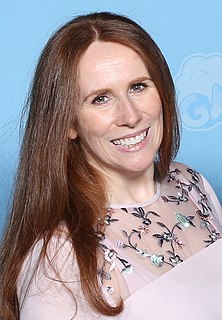A Quote by William Zinsser
A writer will do anything to avoid the act of writing.
Related Quotes
I can't decide for you whether or not you have got to write, but if anything in the world, war, or pestilence, or famine, or private hunger, or anything, can stop you from writing, then don't write . . . because if anything can even begin to keep you from writing you aren't a writer and you'll be in a hell of a mess until you find out. If you are a writer, you'll still be in a hell of a mess, but you'll have better reasons.
The biggest pitfall to avoid is not writing. Not writing is really, really easy to do, especially if you're a young writer. The hope that elves will come in the night and finish it for you, is a very common one to have. That is my main recommendation - you have to write, and you have to finish what you write and beyond that, it's all detail.
I pretty much drink a cup of coffee, write in my journal for a while, and then sit at a computer in my office and torture the keys. My one saving grace as a writer is that, if I'm having trouble with the novel I'm writing, I write something else, a poem or a short story. I try to avoid writer's block by always writing something.
I've learned a lot about language from reading slush. You can immediately tell if a writer is in control of the narrative. This writer will avoid using too many words like "possibly," "probably," "maybe," "perhaps," etc. He/she will avoid using clichés, as well as a lot of metaphors, and won't take four sentences to say what they could in one (or write a great sentence and follow it up with a bunch of stuff that just weakens it).
I haven’t had trouble with writer’s block. I think it’s because my process involves writing very badly. My first drafts are filled with lurching, clichéd writing, outright flailing around. Writing that doesn’t have a good voice or any voice. But then there will be good moments. It seems writer’s block is often a dislike of writing badly and waiting for writing better to happen.
I hate writing. I so intensely hate writing - I cannot tell you how much. The moment I am at the end of one project I have the idea that I didn't really succeed in telling what I wanted to tell, that I need a new project - it's an absolute nightmare. But my whole economy of writing is in fact based on an obsessional ritual to avoid the actual act of writing.
If a writer of prose knows enough about what he is writing about he may omit things that he knows and the reader, if the writer is writing truly enough, will have a feeling of those things as strongly as though the writer had stated them. The dignity of movement of an iceberg is due to only one-eighth of it being above water. A writer who omits things because he does not know them only makes hollow places in his writing.



































